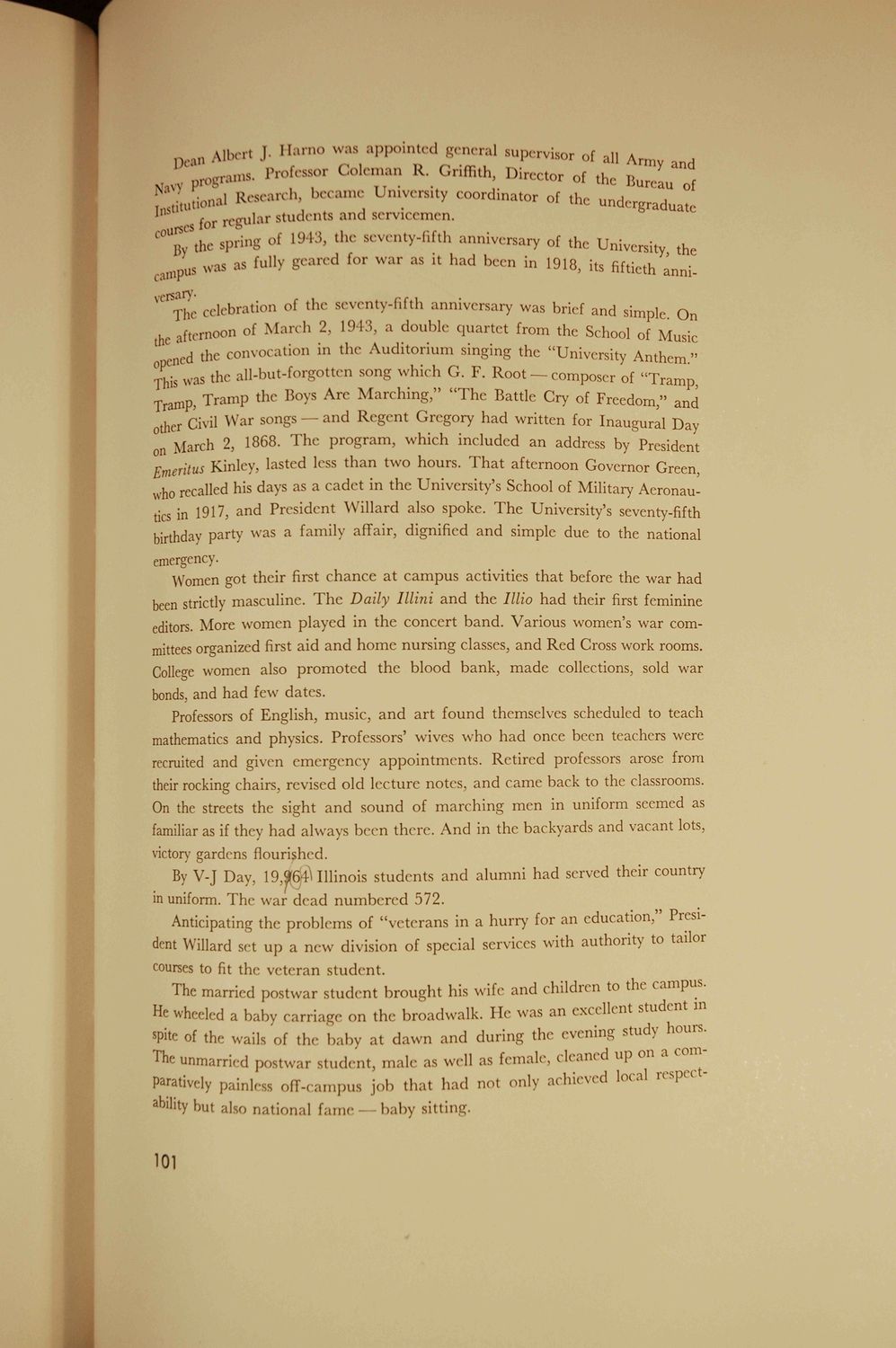| |
| |
Caption: Book - Illini Years
This is a reduced-resolution page image for fast online browsing.

EXTRACTED TEXT FROM PAGE:
Albert .)• Harno was appointed general supervisor of all A r m v a n , ; , „ , , , , „ , . Professor Coleman R Griffith, , , i , , , o r of t h e ^ " / J " Eudonal Research, became Umvemty coordinator of the undergraduate course rnntS °\hc spring Of L943, the SCVCnty-fifth anniversary of the University the By was as fully geared for war as it had been in 1918, its fiftieth annicampus celebration of the seventy-fifth anniversary was brief and simple. On ^ afternoon of March 2, 1943, a double quartet from the School of Music 0 ened the convocation in the Auditorium singing the "University Anthem." This was the all-but-forgotten song which G. F. Root — composer of "Tramp, Tramp, Tramp the Boys Are Marching," "The Battle Cry of Freedom," and other Civil War songs — and Regent Gregory had written for Inaugural Day March 2, 1868. The program, which included an address by President on eritus Kinlcy, lasted less than two hours. That afternoon Governor Green, Emeritu who recalled his days as a cadet in the University's School of Military Aeronautics in 1917, and President Willard also spoke. The University's seventy-fifth birthday party was a family affair, dignified and simple due to the national The U n,.,ul for regular students and servicemen. emergency. Women got their first chance at campus activities that before the war had been strictly masculine. T h e Daily Mini and the Illio had their first feminine editors. More women played in the concert band. Various women's war committees organized first aid and home nursing classes, and Red Cross work rooms. College women also promoted the blood bank, made collections, sold war bonds, and had few dates. Professors of English, music, and art found themselves scheduled to teach mathematics and physics. Professors' wives who had once been teachers were recruited and given emergency appointments. Retired professors arose from their rocking chairs, revised old lecture notes, and came back to the classrooms. On the streets the sight and sound of marching men in uniform seemed as familiar as if they had always been there. And in the backyards and vacant lots, victory gardens flourished. By V-J Day, 1 9 , 9 ^ Illinois students and alumni had served their country in uniform. The war dead numbered 572. Anticipating the problems of "veterans in a hurry for an education," President Willard set up a new division of special services with authority to tailor courses to fit the veteran student. The married postwar student brought his wife and children to the campus. He wheeled a baby carriage on the broadwalk. He was an excellent student in ^ t e of the wails of the baby at dawn and during the evening study hours. The unmarried postwar student, male as well as female, cleaned up on a comparatively painless off-campua job that had not only achieved local respectability but also national fame — b a b y sitting. 101
| |